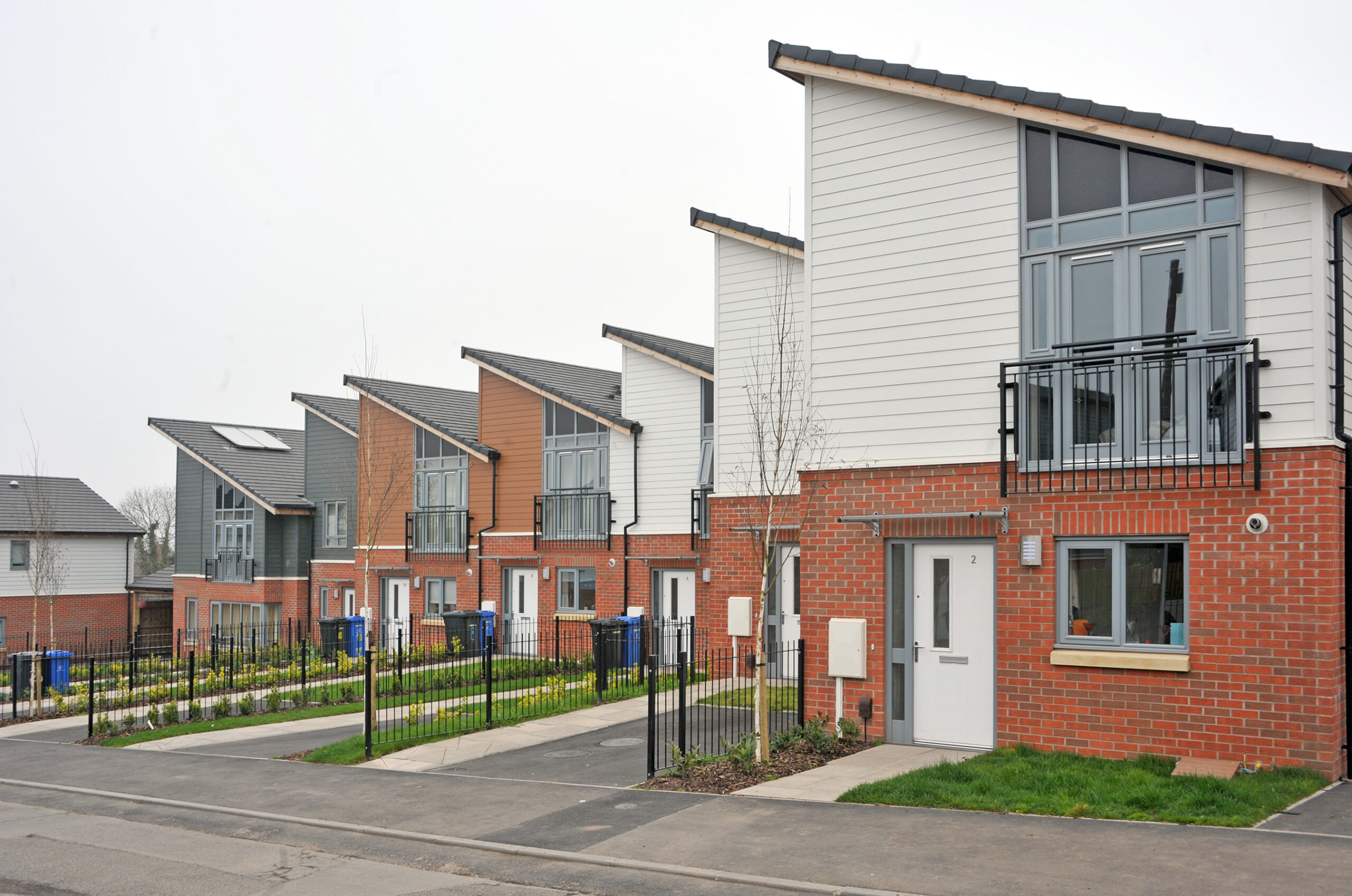CWAG Newsletter – October 2025
This Update includes the following

Consultation outcome: Competence and Conduct Standard
On 30th September 2025 the government published a Direction to the Regulator of Social Housing (RSH) alongside the outcome of last year’s consultation on the a Competence and Conduct Standard for social housing.
The new Competence and Conduct Standard is one element of a series of wider reforms to improve the quality of housing management services in the social rented sector. It will require providers of social housing to ensure all staff have the skills, knowledge, experience and behaviours to deliver safe, high-quality, respectful services.
All providers will be required to have a code of conduct for staff in place which sets out expectations of professional behaviour, ethics and respect for tenants. In addition, a written workforce policy covering learning and development, performance appraisal and managing poor performance will be required alongside an expectation that tenants will be involved in shaping and reviewing both the code and wider workforce policies.
The competence and conduct standard introduces a professional qualification requirement for senior housing managers and senior housing executives who must have or be working towards an approved housing management qualification. This requirement will apply to all senior posts where responsibility for managing the delivery of housing management services is a ‘substantive’ part of the post (generally defined as requiring more than 50% of the postholder’s time).
The implementation timetable has been extended in response to consultation feedback, and the new standard will now come into force from October 2026 with an extended transition period (3 years for larger providers and 4 years for those with less than 1000 properties).
Providers also have more flexibility in managing the implementation as mid-point enrolment requirements have been removed. The consultation response also provides further clarity around requirements for top-up modules where staff hold existing qualifications and exemptions for service providers delivering single or narrow functions. The government has also published a Policy Statement providing detailed additional guidance on the qualification requirements within the new standard.

Following last month’s cabinet reshuffle – a recap on ‘Who’s Who’ at MHCLG:
Steve Reed MP: Secretary of State
Moving from the Department of Environment, Food and Rural Affairs, Steve Reed MP has been quick to reinforce the government’s housebuilding ambitions pledging to ‘build baby build’ and “do whatever it takes to get Britain building”. He used the Labour Party Conference to announce that work on three new towns in Bedfordshire, Leeds and North London will begin before the next general election.
The new Secretary of State has a strong background in local government as a former leader of Lambeth Council and deputy chairman of the Local Government Association.
Alison McGovern MP: Minister of State (Local Government and Homelessness)
Moving from the Department of Work and Pensions to a newly configured ministerial brief that combines local government finance with homelessness and rough sleeping: supported housing and domestic abuse: resettlement and local government reorganisation.
Miatta Fahnbulleh MP: Parliamentary Under Secretary of State
(Minister for Devolution, Faith, and Communities):
Miatta Fahnbulleh MP is part of the 2024 Parliamentary intake, she is moving from the Department for Energy Security and Net Zero (DESNZ), Her background is in policy and research including as Head of Cities in the policy unit at the Cabinet Office. As Minister for Devolution, Faith, and Communities her role includes English Devolution, Mayoral Combined Authorities and pan-regional bodies, local and regional investment, and growth as well as communities and social cohesion.
Samantha Dixon MBE MP: Parliamentary Under Secretary of State
(Minister for Building Safety, Fire and Democracy)
Previously a Government Whip, Samantha Dixon MP has moved to MHCLG with a brief that combines building safety regulations, fire policy, and operations, overseeing the Grenfell Enquiry, Building Safety Regulator, and remediation programmes. Also within her remit are elections policy, net zero and energy efficiency policy, resilience, recovery, and emergencies.

Matthew Pennycook MP: Minister of State (Minister for Housing and Planning)
Offering an element of stability, Matthew Pennycook MP emerged unscathed from the reshuffle and remains in his existing role role as housing minister, focusing on housing delivery, social housing quality and planning reform.
Baroness Taylor of Stevenage: Parliamentary Under-Secretary of State
(Lords Minister for Housing and Local Government)
Appointed in July 2024 and also surviving the reshuffle, Baroness Taylor of Stevenage is the government spokesperson on housing, planning and local government in the House of Lords.
Events
Research Findings – No Access / Preparations for Awaab’s Law – 19th November (10.00 – 11.30) – Teams
The NFA is hosting a webinar on 19 November (10-11.30) to share the findings from the HQN-authored research into No Access and preparations for Awaab’s Law in the local authority sector. This research has been jointly commissioned by the NFA, CWAG, CIH, LGA and ARCH and covers the whole local authority housing sector. Please save the date – further information and how to book places will be circulated shortly.
ADoH Bitesize Webinars
The newly formed Association of Directors’ of Housing Group is hosting a series of one hour webinars on a range of topics. ADoH has confirmed that CWAG members are welcome to attend the webinars listed below. Follow the links to register. Please note you will need to register using your council email address.
- 13 November 2025: Supporting Local Authority Readiness for Renters’ Rights Reforms. Alison Farrar from the government funded Jigsaw team will tell delegates about the team, how they plan to help local authorities prepare for Renters’ Rights implementation and provide an update on upcoming training events and ongoing support for authorities.
- 9 December 2025: State of the nation: HRA finance and business planning. Join Steve Partridge from Savills as he explores the current landscape for council landlords navigating the complexities of Housing Revenue Account (HRA) finance and long-term business planning. This bite-size session will unpack the key challenges and opportunities facing local authorities as they update their HRA business plans.
Recent Government Announcements
MHCLG
Homelessness Funding Announcement
On 9th October the government announced that an additional £84million will be available this winter to help prevent homelessness with a particular focus on on providing help for families with children and those in temporary accommodation. £84 million injection to tackle homelessness
Awaab’s Law and Electrical Safety Regulations
The regulations for both Awaab’s Law and Electrical Safety have now passed both houses of Parliament and been through the required sign off process. The regulations will therefore come into force as planned on the specified dates.
New Towns Taskforce Report
On 28th September MHCLG published the New Towns Taskforce: Report to government which includes recommendations for 12 potential new town locations. The government also announced plans to fast track three named new towns before the end of this Parliament.
Housing Ombudsman
Awaab’s Law Casework
The Housing Ombudsman now has a dedicated page on its website sharing latest casework and learning on complaints about housing hazards related to Awaab’s Law. View webpage
Learning from Severe Maladministration Report – September 2025
The Housing Ombudsman has published its latest report in the learning from severe maladministration series. This report features seven landlords and focuses on complaints about subsidence, adaptations, and rent accounts. These complaints are often overlooked but can have significant impacts on residents’ lives. The report emphasizes the need for landlords to have effective policies and procedures in place to manage these issues. It also stresses the need for clear communication and regular updates to residents to prevent misunderstandings and ensure satisfaction. Download Report
Special Investigation Report Lewisham Council October 2025
The report focuses on the handling of complaints, repairs and serious hazards. Download Report
Regulator of Social Housing
Regulatory Casework Review 2025
In September the RSH published its latest Regulatory Casework Review which examines key themes from regulatory activities over the past year covering governance, financial viability and consumer standards. Areas highlighted this year tenant safety, maintenance of accurate and comprehensive data on both homes and tenants to inform decision making, ensuring effective tenant engagement is incorporated into decision making. Download Report
Latest Regulatory Judgements
Inspection outcomes have been published for 4 councils, Eastbourne Borough Council (C2), Cambridge City Council (C2), Lewes District Council (C2), Canterbury City Council (C3).
Other Publications
There have been a significant number of recent reports analysing the prospects for achieving the governments objective of building 1.5 million new homes within this Parliament including:
- The Housing Forum published its annual review of the Roadmap to 1.5 million homes 1.5M New Homes: The Local Government Challenge. This highlights the 10 obstacles councils face in delivering new homes and the potential solutions being tried on the ground.
- The Chartered Institute of Building (CIOB) published Capacity Constraints in construction: rethinking the business environment , a report which explores the construction industry’s capacity to meet demand for new homes and infrastructure in the UK.
- The Home Builders Federation (HBF) published Planning for Small Sites which highlights the challenges faced by SME builders in the UK.
- Zoopla has published a short report The viability Gap which highlights that building homes is not currently financially viable across 48% of the country.
- The Housing Forum has published a report Breaking Barriers: Collaborative Solutions to Housing Delivery highlighting practical steps to unlocking housing delivery.
- The Resolution Foundation Quarter 3 Housing Outlook Report discusses the prospects of achieving 1.5 million homes over the Parliament.
- The Home Builders Federation has also compiled a report on Section 106 agreements and unspent developer contributions in England and Wales
CWAG Newsletter – September 2025
This Update includes the following

CWAG consultation response – How to implement social rent convergence
CWAG and the NFA have submitted a joint response to the government’s consultation on how to achieve rental convergence. Our response supports the proposal for a £2 per week additional rent increase that will achieve convergence for most landlords within the 10-year timeframe of the current rental settlement. The consultation response was supported by analysis from Savills which modelled the impact of different convergence scenarios on HRAs at a national level.
The response highlights that although extremely welcome, the long-term rent settlement and convergence will not fund everything that the government wants to see the sector deliver and additional resources will be required for new development and any new requirements arising from the proposals in respect of changes to the Decent Homes Standards, energy efficiency requirements and the long-term decarbonisation of homes.
Research Project – ‘No Access’ and Preparing for Awaab’s Law
CWAG has linked up with the National Federation of ALMOs, Local Government Association, Chartered Institute of Housing, Association of Retained Council Housing and Councils with ALMOs Group to commission research project which is in two distinct parts:
i) No Access Research
Levels of ‘no access’ have become a growing issue for social landlords in recent years and are under increasing focus due to the new regulatory and legislative environment (particularly requirements around knowing your homes, building safety requirements, and Awaab’s Law). There has been limited work done on best practice and innovation in this area, which this research seeks to address.
This element of the research will explore the challenges and best practice around ‘no access’ to help inform guidance to improve service delivery and identify what works (and what doesn’t work).
ii) Preparations for Awaab’s Law
The researchers will also undertake a review preparations for Awaab’s Law across the local authority sector to better understand the nature and scale of outstanding challenges as well as to identify and share good practice.
Progress and Methodology
Following a procurement exercise, the Housing Quality Network (HQN) have been selected to undertake the research.
To provide background and context material for the research, all council landlords have been asked to complete two surveys by 19th September 2025. Details of these have been sent directly to lead contacts in both the council and the ALMO. A single return has been requested from each landlord.
HQN is also arranging a number of focus groups to explore both no access and preparations for Awaab’s Law from different perspectives, both tenants and housing practitioners. A timetable showing the different focus groups and how to book places is available here.
Wolverhampton Council to pilot new scheme to accelerate council house building
Homes England has chosen City of Wolverhampton Council as the first local authority in the country to pilot the delivery of a new Affordable Homes Programme.
Aimed at accelerating the delivery of new council homes, the scheme will provide access to a dedicated Government funding portfolio of around £19.7 million, enabling the council to start works over the next 2 years on delivering 200 homes across 11 sites in the city.
The homes will see a mixture of 1, 2, 3 and 4 bedroom houses, flats and bungalows for affordable and social rent. The proposal also includes 67 bungalows – all adaptable, and some wheelchair adapted in response to identified local need from residents.
The scheme will see council housing developed on new sites and existing homes that have poor thermal efficiency and are of poor quality or non-traditional construction will be replaced. Replacing these homes will have a significant impact on the health and wellbeing of local communities.
City of Wolverhampton Council Deputy Leader and Cabinet Member for City Housing, Councillor Steve Evans, said: “This additional financial certainty will allow us to accelerate the future delivery of affordable housing provision in the city. This pilot will deliver new homes that will mean residents and the wider community benefit from improved health outcomes, lifestyle and sustainability.”
Shahi Islam, Director of Affordable Housing Grants at Homes England, said: “As the Government’s housing and regeneration agency, increasing the supply of quality affordable homes remains one of our key objectives. We’re committed to supporting Wolverhampton City Council to achieve their ambitions through this innovative pilot scheme ahead of the new Affordable Homes Programme.”
Government Publications
Right to Buy Sales and Replacements in England April 2024 – March 2025
MHCLG has published outturn information on the Right to Buy programme in 2024-25. In this period, local authorities reported 7,494 eligible sales, an increase of 7% compared to 2023-24. These sales generated receipts totalling £798 million, an average receipt per dwelling was £106,500. In 2024-25 there were 3,593 replacements funded through receipts from earlier eligible sales.
Latest Homelessness Statistics
MHCLG has published the latest quarterly statistics on statutory homelessness in England (January-March 2025). This shows an 11.8% increase in households in temporary accommodation. The number of households with children in B&B style temporary accommodation has seen a 30.1% decrease.
Also published are the latest quarterly Dashboards on Homelessness. For example, the H-CLIC Performance Dashboard is a high level summary of homelessness figures for each local authority in England showing performance across a handful of key measures allowing for comparison between authorities. Current data relates to January to March 2025.
Delivering a data standard to support Awaab’s Law in social housing
MHCLG Digital has published a blog post with information about a new data product designed to help social landlords develop new systems to capture tenant specific vulnerabilities and other data requirements linked to the implementation of Awaab’s Law.
An in-person workshop introducing the system will take place in London on 12 September for housing associations and councils. Details on how to book workshop places are included in the blog post.
Round 10 of DESNZ Heat Networks Efficiency Scheme (HNES)
On 5 August DESNZ launched round 10 of the Heat Networks Efficiency Scheme which aims to support performance improvements to existing district heating or communal heating projects reducing carbon emissions and costs to consumers. Up to £2m of revenue grants are available across FY 23/24 and FY 25/25 for up to 100% of eligible project costs of Optimisation Studies. £75m of capital grants are also available covering up to 50% of eligible costs.
Application submission date – 19 September 2025.
Other Publications
Housing Ombudsman – Complaints about Windows (August 2025)
The Housing Ombudsman has published its latest ‘learning from ‘severe maladministration’ report which focuses on complaints about windows. This is a long report detailing 38 individual case examples, including multiple cases relating to some landlords.
The report highlights three key areas where landlords are failing:
- Not taking account of the composition and circumstances of the household. Failure to undertake risk assessments that make the connection between household circumstances and the condition of the property. The impact on children and occupants with health conditions in the household are often not factored into the landlord’s response.
- Landlords are routinely deferring window repairs as these are often more suited to major works programmes. Whilst recognising that replacing windows can be complex and costly for landlords, this is not a justification for leaving tenants for long periods with unsafe and defective windows, with potentially serious hazards left unmitigated. Landlords should assess the risks to residents’ safety before deciding not to replace windows outside of long-term major works schedules.
- The report highlights landlord obligations under the Housing Health and Safety Rating System (HHSRS) to actively address potential hazards, including interim mitigations where these are needed if works are delayed. Landlords should ensure timely and appropriate responsive repairs are carried out.
Building Beautiful Council Houses – Policy Exchange (August 2025)
The Policy Exchange has published a 35-Point Blueprint for a New Generation of council housing which calls for a return to the traditional social and design ideals that characterised earlier public housing programmes whilst also learning from the mistakes of the past.
Diary Date – CWAG Annual General Meeting
This year the CWAG Annual General Meeting will be on Thursday 9th October 2025 (10.00 -12.00). The meeting will take place over Teams. Please note the date in your diary.
At the AGM there will be a discussion around the future direction of the group. Our speakers are:
Jo Allchurch – the newly appointed Director of the Association of Directors of Housing (ADoH). Jo will give an overview of the plans being developed for ADoH and the potential for ADoH to provide representation for councils with ALMOs going forward.
Racheal Williamson, Director of Policy at the Chartered Institute of Housing. Jo will discuss planning for the implementation of the Competence and Conduct Standard.
The formal business of the AGM involves the election of representatives to the Executive as well as reviewing the operating arrangements, work-plan, and financial affairs of the group.
Consultation response – How to implement social rent convergence
CWAG and the NFA have submitted a joint response to the government’s consultation on how to achieve rental convergence. Our response supports the proposal for a £2 per week additional rent increase that will achieve convergence for most landlords within the 10-year timeframe of the current rental settlement. The consultation response was supported by analysis from Savills which modelled the impact of different convergence scenarios on HRAs at a national level.
The response highlights that although extremely welcome, the long-term rent settlement and convergence will not fund everything that the government wants to see the sector deliver and additional resources will be required for new development and any new requirements arising from the proposals in respect of changes to the Decent Homes Standards, energy efficiency requirements and the long-term decarbonisation of homes.
Rent Convergence Analysis
The final version of Savills updated analysis of the impact of different convergence options has now been published. The analysis was commissioned by CIH in partnership with the NHF, LGA,NFA, ARCH and CWAG.
The updated analysis models the potential impact of three convergence scenarios – £1, £2, and £3 per week and will inform responses to the governments consultation – How to implement social rent convergence.
Resume – Rent convergence analysis update
Annex – slide deck setting out detailed modelling assumptions
Government publishes response to consultation on reforming the Right to Buy
Following the consultation earlier this year, the government has announced that it will bring forward legislation to implement the following additional changes to the Right to Buy scheme:
- Exempt newly built social and affordable housing from the Right to Buy for 35 years.
- Increase the eligibility requirement (currently 3 years as a public secure tenant) to 10 years.
- Prevent existing property owners, or those that have previously benefitted from the scheme, from exercising the Right to Buy unless there are exceptional circumstances, e.g. victims of domestic abuse.
- Amend discount rules so that discounts start at 5% of the property value and increase by 1% for every extra year an individual is a secure tenant up to the maximum discount of 15% of the property value or the cash cap (whichever is lower).
- Increase the period from 5 years to 10 years that the council has the right to ask for repayment of all or part of the discount on the sale of property.
- Extend the period in which a local authority has the right of first refusal when a property previously bought under the Right to Buy is sold so that it applies in perpetuity.
In addition, the receipts regime will be reformed and existing flexibilities on spending Right to Buy receipts will now apply indefinitely allowing councils to combine Right to Buy receipts with grant funding for affordable housing.
Further policy work is also proposed in the following areas:
- Preventing fraud
- Cost floor reforms to better protect investment in existing homes
- Timelines for processing RTB applications
- RTB in rural areas
Delivering a decade of renewal for social and affordable housing
The government has set out its longer term plans for social and affordable housing, including five key steps which will underpin ‘the biggest increase in supply in a generation alongside a transformational and lasting change in the safety and quality of homes’.
The five steps are:
- Deliver the biggest boost to grant funding in a generation
- Rebuild the sector’s capacity to borrow and invest in new and existing supply
- Establish an effective and stable regulatory regime
- Reinvigorate housebuilding
- Forge a new relationship with the sector to build at scale
The plan published to coincide with fiscal announcements in the Comprehensive Spending Review including:
- A 10-year £39 billion Social and Affordable Homes Programme (SAHP) to deliver around 300,000, at least 60% of which will be for social rent.
- A rental settlement based on CPI+1% for 10 years with the potential to include a convergence mechanism.
- £2.5 billion of low-interest loans over the Spending Review period to support the delivery of new social and affordable housing.



